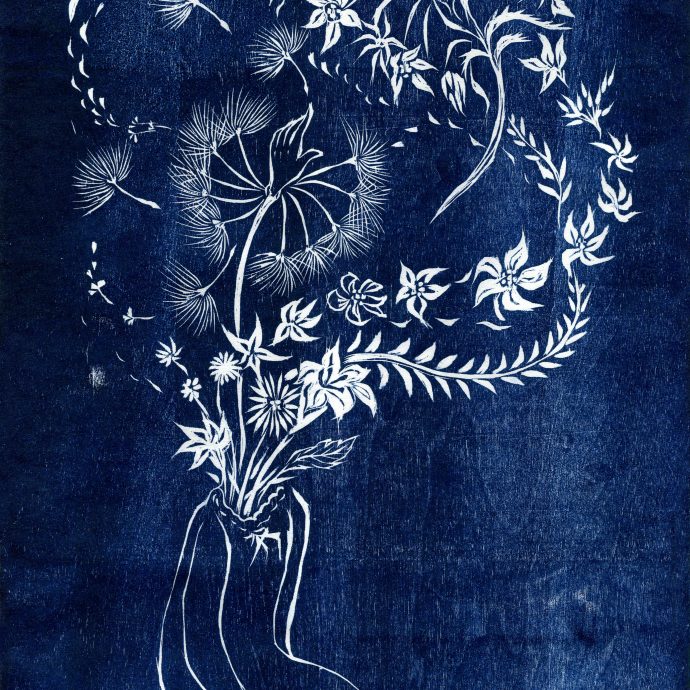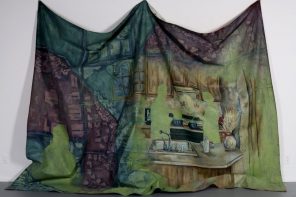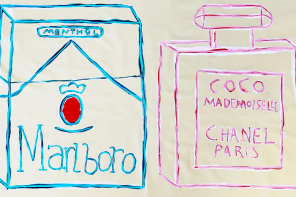Why My Poems Arrive Wearing Black Gloves
like twin gauntlets set on the margin: enter the female assassin. The screwball debutante. Noir and glitz mixed in one bad throwback to an age when dahlias bowled anyone who breathed them. My poems arrive wearing satin or suede to haunt you when they leave no trace. I’ve watched a man pull off his gloves with his teeth. The trick to undoing the wolf behind the saint is to make a slo-mo invitation of it. Because there’s never a plot unless one of us goes missing, that’s me at the aerodrome, and you boarding a custard plane. Now fly a desultory wind before you vanish. That’s the tension we need. I love an overblown image: a drawer full of hands wave in a solemn motorcade. My gloves pantomime moods so thick you could ladle gravy. About my first book, a critic wrote I’m a little bored with the aesthetic. If that isn’t damning, what is? My poems wear black to turn the dials and bag the ice. In the director’s cut, I’m driving the hairpin curve when the camera rolls back to show you, looking louche, but alive. You were always in on it. A poem is a diamond heist. Tell the critic no one watches a woman enter a room to look at her hands just like no one’s reading this poem to picture my life. But a black glove. That. Peeled down the avenue of my arm, what wouldn’t you do?
The Roses
Daily the beatitudes. Phosphorus struck in midnight air. Flame cupped against rain. Deadheaded rose, crowned with bees. Daily the cut arrangements threaded in chain link, yellow tape dividing yesterday’s gunfire from today’s erasure. The roses are edged with bruises. The roses—American red—absorb the floodlit street. The roses hang nightlong in their jagged mourning. Scent the air with mottled plum. Ask only to open, once, prophesy and die.
Why My Poems End on Fire
or the sudden moment the sculptural dark turns visible, the light gone on/off long enough to graze the contours of a lover’s face. Or blood. Beauty. I don’t know why splendor and loss mean the same. Take the hard kiss of Nirvana in a thirteen-year-old’s brain, each song against the day’s collisions—or did I mean collusions?— the heart an empire paved in low-note guitar riffs. When Nevermind tops the Billboard 200 I don’t believe the wanton mouth who never loved anyone. So what if my work simmers like marrow into gel, condensed to a few gold sips? My best words trace the line from navel to V, but what’s the use in promising heat without its opposite, refusal? My poems end on fire because destruction seeds the forest. No. The lake.
Dear X
Here’s the pill. Here’s the jonquil. One for the hand. One for the eye. One to wound. The other to kiss your lip. Here’s the cup level with antidotes. My mouth, refusing to drink. Here’s the seam of a river in Allegheny County. Half my life ago, the future rode a horse black as creosote. Now the future is here. I’m alive, the flower an argument for another day, the horse a wound my wild heart eats.
Karen Rigby is the author of Chinoiserie (Ahsahta Press). Her poems have been published in Palette Poetry, Bennington Review, The London Magazine and other journals. She lives in Arizona.




